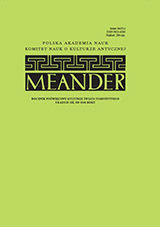
Martin Litchfield West (1937-2015)
An obituary of Martin L. West (1937–2015), an eminent scholar, one of the most outstanding classical philologists of our time, with a concise presentation of his writings and achievements.
More...We kindly inform you that, as long as the subject affiliation of our 300.000+ articles is in progress, you might get unsufficient or no results on your third level or second level search. In this case, please broaden your search criteria.

An obituary of Martin L. West (1937–2015), an eminent scholar, one of the most outstanding classical philologists of our time, with a concise presentation of his writings and achievements.
More...
An obituary of Ben (Benjamin Irving) Nadel, a scholar known for his important works on Hellenism (especially on inscriptions of the Bosporus Kingdom) and on the early history of Jews in Eastern Europe.
More...
A review of Wilfried Stroh’s book Latein ist tot, es lebe Latein! Kleine Geschichte einer großen Sprache, translated into Polish by Aleksandra Arndt. Stroh’s text A review of Wilfried Stroh’s book Latein ist tot, es lebe Latein! Kleine Geschichte einer großen Sprache, translated into Polish by Aleksandra Arndt. Stroh’s text is accompanied by Elżbieta Wesołowska’s introduction devoted to the present state of Latin in Poland, and by the translator’s essay on the role of Latin in the works of the Polish poet Julian Tuwim (1894–1953).
More...
The essay shows the causes of Poles’ diminishing acquaintance with Latin. The author claims that, in spite of those factors, we should cultivate this language as the only reliable way by which we can access the Roman patrimony.
More...
An interview with Professor Juliusz Domański about his contacts with the Catholic University of Lublin and with various scholars and writers, such as Rafał Taubenschlag, Jan Parandowski and Eugeniusz Dąbrowski.
More...
Loan words represent an interesting area of research, bringing together multiple linguistic systems, cultures and identities. The vocabulary of a language is the outcome of multiple linguistic interactions and it becomes richer thanks to the loan words it receives from other languages. This article aims at bringing forward the influence of Arabian language on the French language, the fields where numerous loanwords taken between the 11th and 19th centuries can be found. These loanwords entered through Medieval Latin, Italian, Spanish, Provencal and Portuguese.
More...
The German preposition bei belongs to the category of primary prepositions, which determine words or groups of words (in Dative, Accusative or both cases) and, in turn, can be determined by verbs, adjectives and nouns. Therefore, this preposition determines many relations and indicates place, immediate nearness, while also developing a secondary meaning – both temporal, conditional, modal, and concessive. Moreover, bei is included in many phrases, which we have tried to present and explain in the hereby paper.
More...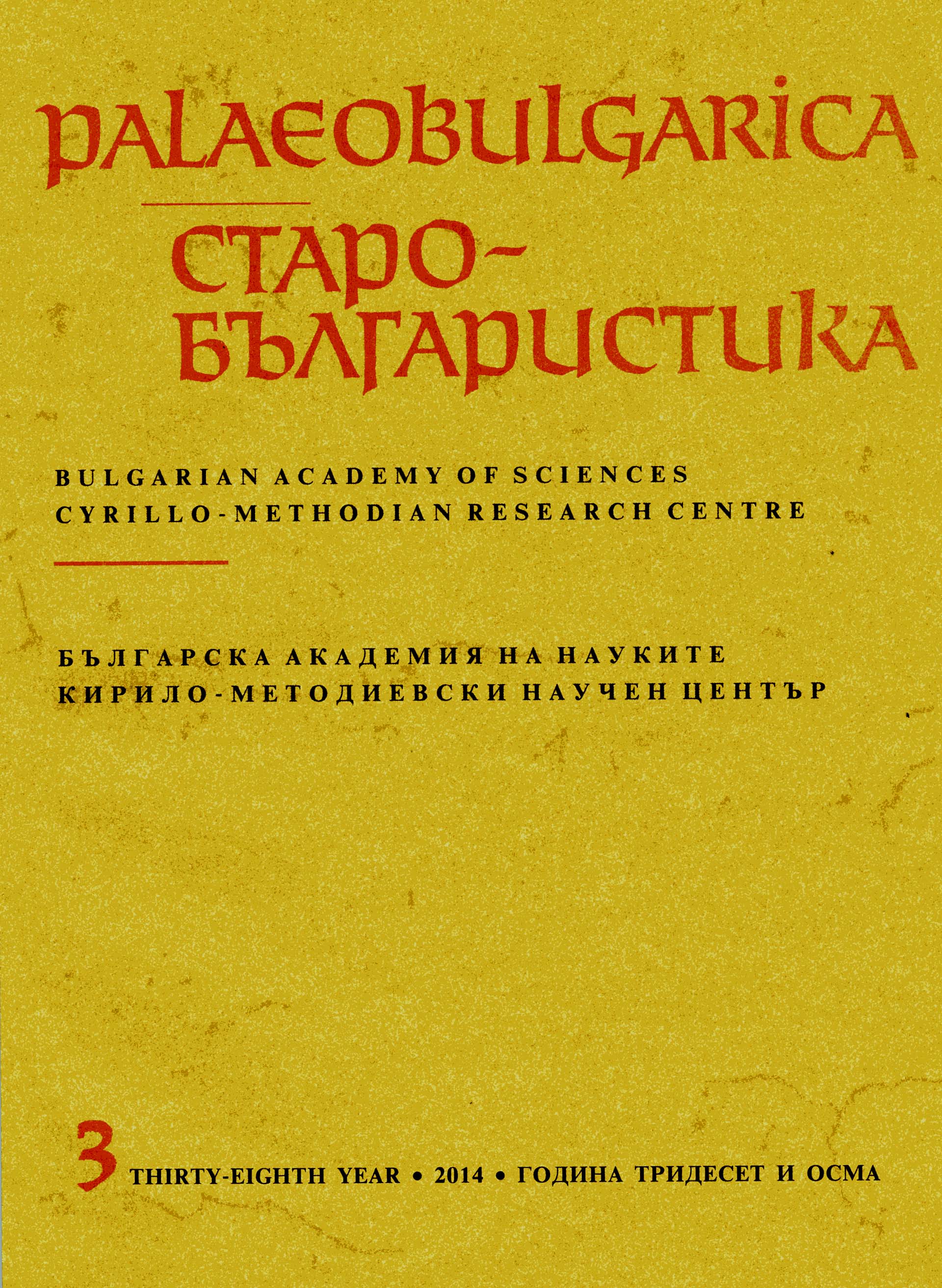
The article deals with different types of multi-word nominations for persons occurring in the Old Bulgarian manuscripts from the 10-11th centuries as well as in the text of some Old Testament books according to their oldest Slavonic copies. The problem that not only words should be considered as units of naming but also some types of phrases is very actual when describing modern languages but new and unresearched for Old Slavonic languages. The authors aim at observing multi-word nominations that are units of designation (and therefore lexical units, just like single words) and distinguishing them from units of description. Such a differentiation is based on the main feature of multi-word nominations, viz. the function of naming linguistic concepts. They also take into account that the major part of multi-word nominations in Old Bulgarian were created in the course of translation from Greek originals. Therefore the Slavonic expressions are described and analysed with reference to their structure and meaning in the corresponding Greek texts.
More...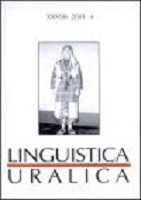
The article addresses the lexicon specific to Proto-Samoyed material culture, and its origin. In addition to the analysis of the available etymologies some new ones are also suggested. As for its origin, the relevant wordstock can be divided into words of Proto-Uralic and Proto-Samoyed origins, loanwords from Proto-Tungus-Manchu, Proto-Turkic, Proto-Yeniseian, Middle Persian and Paleo-Asiatic languages, and a few words with unknown origin.
More...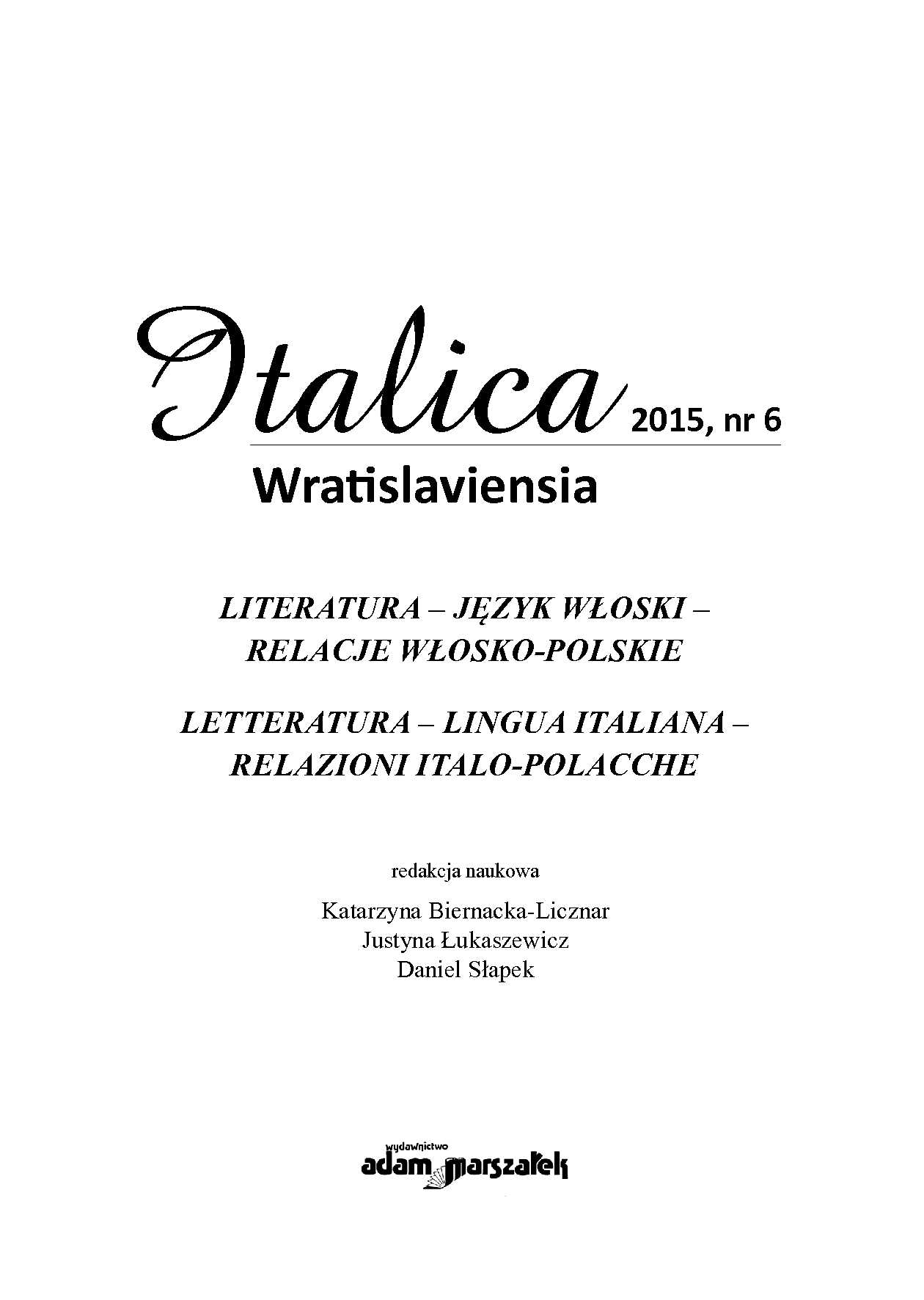
this article describes the rewriting process of Pietro de’ Natali’s Vita Sancti Albani in Giovanni Battista Moroni’s Principe Santo. through contextualising the experience among the canons of the 17th-century devotional novel and detecting the cultural and literary influences; this study explores the traits of the didactical project underpinned in the book; in which devotional purposes; moral meditations and political precepts are strongly intertwined. Finally; specific analyses are dedicated to the new geographical setting evoked in the novel; an ahistorical medieval Sarmatia (Poland); these examine the perception of a distant land and show the functional use of geographical elements to testify the historicity of an incredible story.
More...
Stefano Redaelli (2013). Circoscrivere la follia. Mario Tobino; Alda Merini; Carmelo Samonà. Warszawa: Wydawnictwo Naukowe Sub Lupa; pp. 200.
More...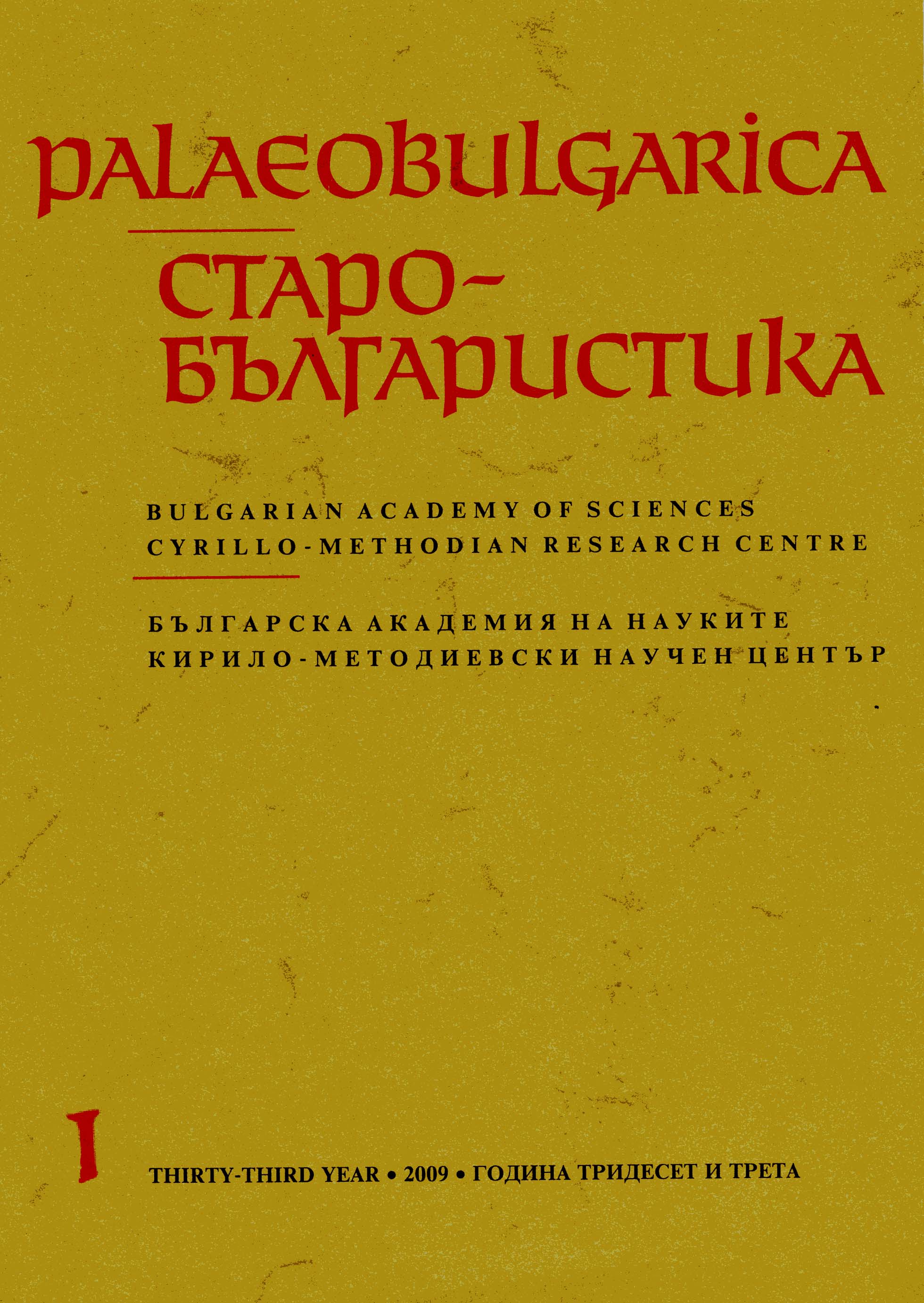
The aim of this paper is to show some of the changes that the verbs derived from nouns underwent in the course of the grammaticalization of the aspect in Bulgarian. The Old Bulgarian nominal stems were combined with suffixes, whereas verbs are created by prefixation in contemporary Bulgarian. The nature of the Old Bulgarian de-nominal verbs shows that attention should also be paid to formal and semantic changes in the structure of the verbs in question.
More...